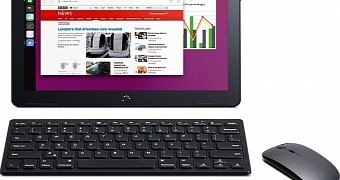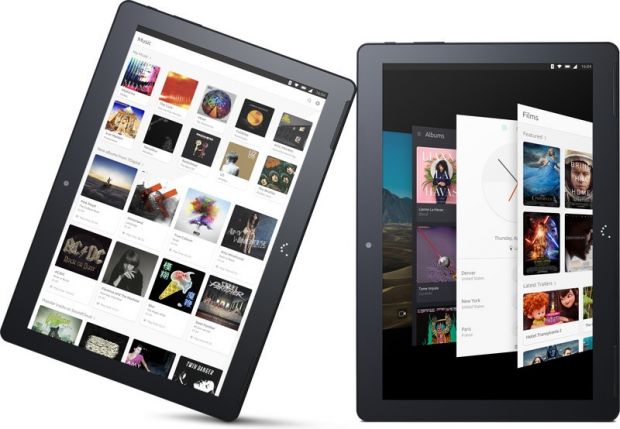Canonical announced yesterday the first tablet that runs Ubuntu, which also happens to be a convergence device. The company is now starting to blur the lines between PCs and mobile devices, and Ubuntu is a key part of this process.
We are used to thinking about PCs and mobile devices as separate entities. Sure, they can talk to each other, but they are used for separate things. The tablets fall somewhere in the middle. They have bigger screens, but the same basic functionality of the mobile devices is retained. Tablets are an interesting concept for which we still try to find a place in our lives.
On the other hand, phones and tablets have been evolving for the past few years, and there are obvious signs that we are working to find new uses for them. Some of the other companies figured out this convergence idea, and they are pushing towards this goal. From the looks of it, this is the main direction of the evolution.
A convergent tablet, what does it mean?
The first part of the news was that Ubuntu is finally on a tablet, three years after the original announcement made by Mark Shuttleworth, the founder of Canonical. It's not a form a major company and it's not terribly powerful, but this is more than a simple tablet.
The BQ Aquaris M10 transforms into a full PC when connected to a mouse, keyboard, and / or external display. With the 10.1 inch display, you don't really need to connect it to a bigger display, and all you need for a full desktop experience is just mouse and keyboard.
We say that BQ Aquaris M10 is a tablet, but that's just for lack of a better word. The truth is that BQ Aquaris M10 belongs in a new category of convergent devices that has yet to be named. Maybe if we get enough of these, we get to call them something different.
Ubuntu is starting a revolution
If Canonical plays its cards right, it's going to be at the forefront of convergence. Some of you will say that Microsoft is doing the same with Windows Continuum and Windows Phones, but it's not even coming close to the Ubuntu level, not to mention the fact that Windows for phones might be living on borrowed time.
The Ubuntu convergence works all the way, which means that regular desktop applications will be able to run on it, and developers won't need to make special ones. They already had success with apps like LibreOffice, Google Chrome, or VLC, and that's just the start.
Canonical has the opportunity to make something really great and to be responsible for making a new type of devices that can no longer be considered tablets or phones or PCs. The lines between the two categories are getting more and more blurry, and pretty soon we won't be able to tell which is which.

 14 DAY TRIAL //
14 DAY TRIAL // 

